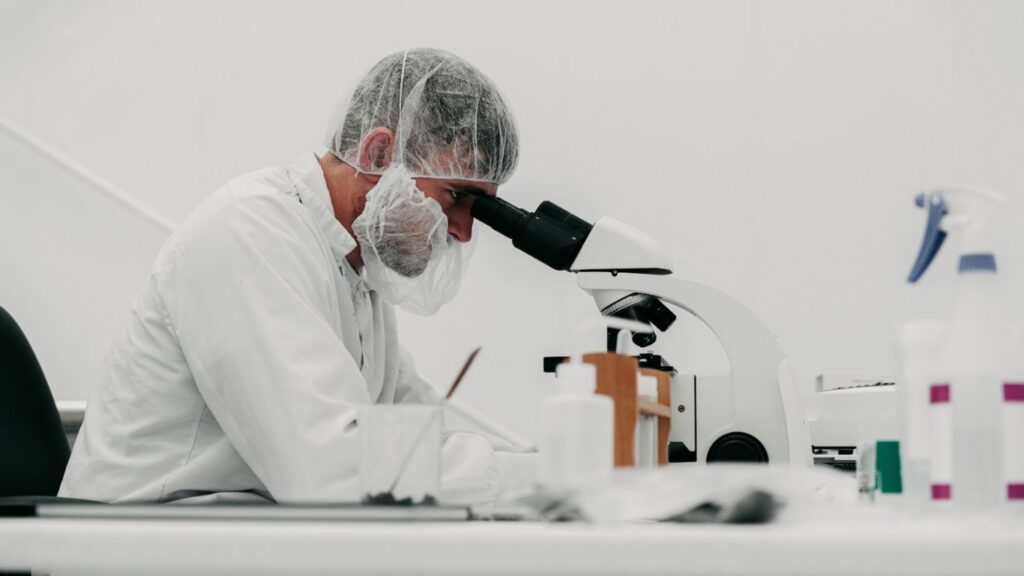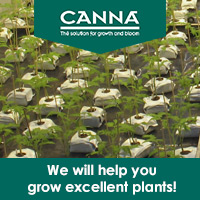
Island Genetics in Ladysmith, BC, is one of a handful of cannabis producers in Canada growing in living soil. They are part of an even smaller group of small-batch growers in Canada making a living selling their cannabis into international markets while they develop a brand domestically.
Starting as a group of friends growing cannabis for medical purposes for a handful of people under Canada’s old ACMPR regulations, Island Genetics received their commercial licence to cultivate and process cannabis in October 2022.
With a focus on small-batch cannabis grown in living soil—meaning soil they do not replace soil, instead regularly building up its microbiome crop after crop—the company is utilizing about half its total footprint. Although licensed as a standard cultivator and processor, they are currently growing in about as much space as a micro (200 m2).
Through connections the company’s CEO, Zach Chester, established in the international market, Island Genetics has ensured a steady sales channel for their product at a time when many producers are struggling to find sales in different provincial or domestic medical markets.
At the same time, Chester says he and the company’s modest team have been developing small runs of products for the local market, with a batch of live rosin sold recently through BC’s Direct Delivery program, and a SKU approved for sale in Ontario later this year.
This approach of starting small and slowly building the brand internationally and domestically has allowed them to grow at what Chester says is a sustainable pace.
While their first six crops have sold into Europe and Australia, they also have plans to develop a brand in the German medical cannabis market, all of which are eager for high-quality, small-batch products.
The biggest challenge in selling into the international market isn’t demand, explains Chester, but in consistently passing testing standards that can be much more strict than in Canada. While some might be concerned that a living soil product would have trouble passing those strict standards, he says they have been able to do so consistently due to their high standard of quality and cleanliness.
Although growing in living soil takes a bit more work and can sometimes mean a lower yield than hydroponics, the quality of the flower makes it all worth it, according to Chester. This higher quality is what has ensured that they’ve been selling out of everything they produce.
He says they also take a very scientific approach to their living soil, carefully analyzing both the soil and any amendments to it, to ensure they are producing the healthiest growing medium possible. In turn, this produces a healthier plant and a better quality flower.

“I think there’s a lot more plant lipids that you get from having that large array of trace minerals and different mineral components always available to the plant,” says Chester. “I just feel there’s a more viscous quality in the smoke. More complex terpene profile, better flavour.”
Despite having so much success in the international market, Chester says his desire has always been to have a successful brand and to be able to sell into his home province. However, the lifeline of international sales has allowed him and his team to build that domestic brand on their own terms and timeline.
“I feel what we’re doing is unique, and we’re pushing what can be done with living soil. I want to be known for what we do, have our name on the package, and have that brand story out there. That is the goal. But that can’t be built overnight.
“We’re just kind of testing the waters here in Canada now. My buyers in Europe will buy everything we grow, but the dream is to have our own brand here. So I’m just slowly putting out different drops for Direct Delivery in the local market for small batch hash rosin runs. And so far it’s pretty much sold out immediately, so we’ll keep building that brand here, too.”
Securing those sales has also been with the assistance of several other local players, from partnering with cannabis marketers Highmark, and working with a neighbouring cannabis nursery, Life Cycle Botanics.
Although Island Genetics has its own veg room and its own extensive genetics library, Chester says he’s been very happy to work with Life Cycle Botanics to secure not only the kinds of high THC strains the market is demanding but also ensuring they’re coming from stable, clean genetics.
“They’ve been nothing but great. Very accommodating and easy to work with. They’ve worked out a custom approach for us, and I really like their approach, how rigorously they test their plants before putting them into production, and how strict their SOPs are, it makes me feel comfortable working with them.”
Although he understands he has to supply the market with the kinds of high THC flower consumers currently demand, Chester also says consumers are starting to realize there’s more to good weed than just THC. As that shifts, he and his team are ready with an array of landrace and other unique genetics that, while maybe being under 20% THC, have distinctive flavours and aromas that will help future brands stand out.
“I think consumers are starting to get smarter, from what I’m seeing. People are starting to notice the products that are better than others and I think people are going to start caring less about THC and more gimmick products and more about strains and who the producer is.”
“We still have a long way to go, but I think we’re starting to see things improve. There’s a lot of producers leaving the market right now, but as the supply balances out, the demand for a quality product will only get stronger. And we’re going to be ready to serve that market.”
This profile is brought to you by Life Cycle Botanics.












